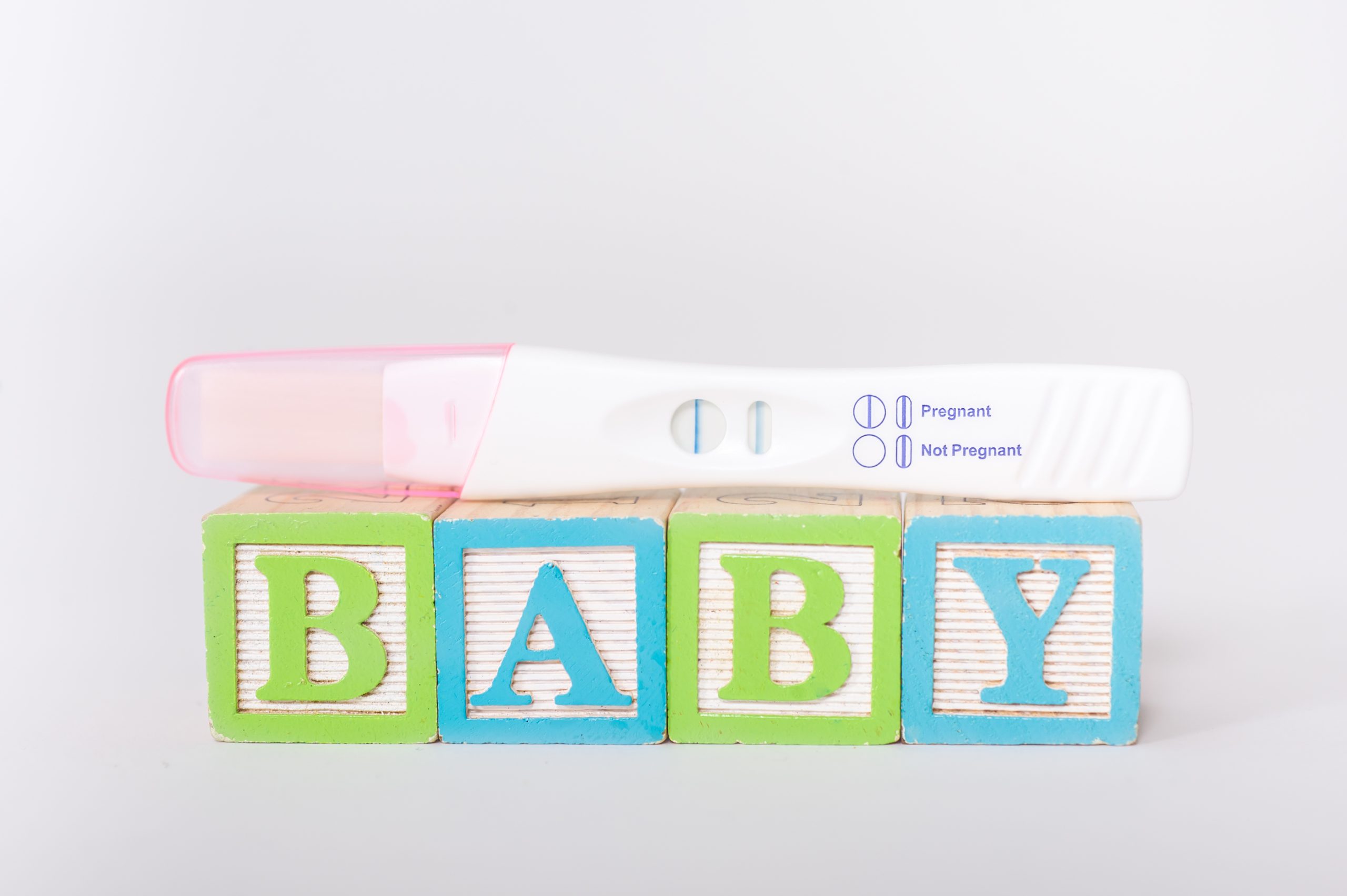
by Rev. Adam Chandler
The pro-life case for carrying a child to term is often framed as “abortion is wrong,” which would make it a “negative case.” A negative case, or negative description, is portraying something in light of what it is not. By contrast, a positive argument is presenting how something exists (a description) and the reasons why it should exist (a case). There is too much to life to frame abortion as the default position for discussion instead of an extreme exception to the rule that we should honor life in all its respects. So, why is pregnancy and the life it yields a blessing?
For any woman who has gone through pregnancy, the notion that pregnancy is a blessing might sound like an oxymoron given her personal experience. Commonly known difficulties are morning sickness, aches, and fatigue, while lesser-known issues include hemorrhoids, constipation, and stretch marks[1]. Pregnancy is physically demanding on women, and this should come as no surprise given this is the process through which a woman grows a whole person in her body. However, this is itself a sign that the pregnant mother is feeling the weight of life itself.
New Life
Christ talks about the process of giving birth as a parable for the resurrection, which must begin with the crucifixion (John 16:21-22). As a woman spends time in suffering before the joy of birth, so Christ suffered on the cross before He rose in new life. Christ cannot rise from the dead if He does not die first. Christ faced great torment across all aspects of His life with physical pain, emotional anguish, social rejection, and spiritual despair (“My God, my God, why have you forsaken me?”). Yet, it is precisely because Christ has suffered across the spectrum of the human experience that He can redeem us from the suffering we ourselves experience. We are brought out of evil when Christ’s blood is shed for our sake. Therefore, there is truly great rejoicing in the resurrection, for suffering unto death does not end with death. It ends with eternal life in the goodness of God. Christians preach the whole of this message, not just the suffering beforehand. Suffering passes away into joy with new life. There is great suffering in childbirth—and even, to an extent, pregnancy—but the new life who comes out overshadows the suffering experienced. This too often gets overlooked. Pregnancy is not solely about the negative experiences of the mother, but it encapsulates the hopes and promises tied with her role in bringing forth new life, a new person.
 The whole reason why pregnancy is demanding is that it brings forth a life—it bears the burden of that life. Parenting afterward is another burden where parents nurture that life to take on the challenges of the world. But our everyday service to one another also finds us caring for other people in different facets of their lives. The more expansive role we take does let us feel the importance of it. Replying to the question of “What time is it?” takes only a moment for checking a clock and does nothing more than give a slight amount of direction, but you show that you care about another person in a simple reply. Would it not be far more praiseworthy to provide more than this? Pregnancy is worth rejoicing about because it contributes far more to someone’s good than most of our roles in society, and investing in the development of a human body within a warm, safe place takes far more out of you—figuratively and literally. In this way, women fulfill part of their role as image-bearers of God.
The whole reason why pregnancy is demanding is that it brings forth a life—it bears the burden of that life. Parenting afterward is another burden where parents nurture that life to take on the challenges of the world. But our everyday service to one another also finds us caring for other people in different facets of their lives. The more expansive role we take does let us feel the importance of it. Replying to the question of “What time is it?” takes only a moment for checking a clock and does nothing more than give a slight amount of direction, but you show that you care about another person in a simple reply. Would it not be far more praiseworthy to provide more than this? Pregnancy is worth rejoicing about because it contributes far more to someone’s good than most of our roles in society, and investing in the development of a human body within a warm, safe place takes far more out of you—figuratively and literally. In this way, women fulfill part of their role as image-bearers of God.
God-Given Purpose
God is our Creator, and He commands us to be fruitful and multiply (Genesis 1:28). God Himself nurtures and grows His people by grace but also guards and protects them by saving them spiritually and even physically. The Lord designs and orders His creation to provide what we need. With respect to pregnancy, this means fulfilling a moral imperative to do what is good in this world. Human beings act as procreators by conceiving, birthing, and nurturing children. Men and women have different roles in this, where the men are tasked more with the role of care and protection of their pregnant wife (“… husbands should love their wives as their own bodies … For no one ever hated his own flesh but nourishes and cherishes it …” Ephesians 5:28-29), while the woman goes through her physically demanding role of growing this life within her. God declares it is good to bear children, and humans live up to this goodness by bearing those children. In the same way, it is good to love, protect, and care for your neighbor as something the moral law commands.
Even in the secular realm, there is an imperative to be fruitful and multiply, although this tends to be viewed more as a biological imperative than a moral imperative. Women will naturally feel compelled to have children. Of course, there are many variables to this which depend on personal experience, age, society, etc. where not all women may feel compelled to have children, but most women want children, given the opportunity. A 2024 study suggests that only 29% of women in the United States are unsure whether they want to have or do not want children [2]. More children are being born within religious households who view children as an important aspect of life (Psalm 127:3), but a lot of children are born to non-religious households, too [3].
Evolutionary theory—held to by the non-religious as well as many who are religious—even teaches that in order for a species to survive and flourish, there must be offspring. There is a biological imperative within the species to continue having children and positive feedback loops exist in the body to promote conception and childrearing. (The secularist would claim this to be by happenstance, but a creationist would say these things are in the human body by design.) Those who do not produce enough offspring to offset the death in a community eventually become extinct. Therefore, if people view humanity as something important to preserve, they would be compelled to have children. For our society to continue, we need children who are taught our values [4].
Meaning and Inheritance
Secularists and Christians alike can agree that children give life meaning. All life’s meaning is not subsumed in having children, but children do provide significant meaning to their parents’ lives. What is to happen to all that you have cultivated in your life upon your death? You will no longer be around in this world to reap the benefits of all you accomplished, and who knows if the one who comes after you to take what is left is a fool who will squander your work? That is the lament of the author of Ecclesiastes. He has an existential crisis when he considers that everything he has worked for (palaces, vineyards, money, etc.) will be lost, as if he had not contributed anything to the world (Ecclesiastes 2:1-19). Our efforts lose value once they are made out to be pointless endeavors with no effect. Value, meaning, and purpose are essential aspects of life. A child provides a promise of the future—a legacy. There is one life that will receive what you offer. Your efforts will contribute to the life of another.
One of the most important concepts in the Old Testament is inheritance. You want an inheritance—receiving and giving it. Receiving an inheritance has the obvious benefit of gaining whatever is offered for yourself, but not all of us may be as keen to offer up an inheritance for our descendants. However, bestowing an inheritance is one of the reasons for living because it perpetuates your efforts throughout all time. This is why God declares things like the Promised Land being an inheritance forever (Genesis 17:8). Those inhabiting the land will die and cease to live in it, but their children will receive the inheritance to perpetuate the family.
The less impact something has on one’s life and the world around us, the less valuable it appears. Should all our efforts be seen as contributing to our lives only, then contributing to other people’s lives seems less important. Should our contributions to the world leave a legacy—an inheritance—which endures beyond ourselves, then our actions seem to have more meaning. God sets eternity into the hearts of His faithful and brings their lives into eternity, including the seemingly pointless activities within them (Ecclesiastes 3:11-13). You are not merely eating a makeshift dinner from the vestiges of leftovers in your fridge, you are fueling your flesh to act in love toward God and the betterment of those in His creation. Pregnant mothers are eating for two in order to love the child within their womb and produce an inheritor of their life’s efforts. Even if the mother dies early or rejects her child, the child will be the one to perpetuate the mother’s contributions in the world by simply living—and possibly also causing more people to be born unto the Last Day.
Part of the inheritance lived through the child will be intangible things that would otherwise end in the mother’s death. The legacy of the family will persist alongside all the values taught to the child. The child is the means through whom the love, honor, morals, etc. of the parents may come forward. More than this, the child will also be the conveyor of the blessing of the union of his/her parents. (Evils may also be communicated to the child who, in turn, may reintroduce them into the world, but there remains the potential of every good thing being communicated as well.)
Love is inherited by the child. The secular world typically does not view marriage (the only God-ordained situation in which sexual acts may be had) as the one-flesh union as Christians do (Matthew 19:6). The one-flesh union is about the joining of two lives into one. The body and life of the husband is given to the wife, and the body and life of the wife is given to the husband. The conception of a child within this relationship is the ultimate expression of this union in love where new life is born from the flesh of the parents desiring to make their two separate fleshes one flesh—their two lives into a new life together. The child is the embodiment of marital love, which is true for the Christian and non-Christian worldview. Regardless of a secular understanding of the sexual act (which is not necessarily housed within marriage or an expression of love), there is no denying the biological reality that the child is a union of the literal flesh of the father and the literal flesh of the mother. Therefore, the child is also recognized as the embodiment of the sexual act where the parents did care in at least a remote way for each other. The child is a blessing for this action, even by secular standards.
There is the exception to this general argument of children conceived in forced sex. This is serious, especially when the mother associates the child not as the embodiment of love but of the violence done against her. What can be said is that the child itself is not violence. The child is still meant to be a blessing, who will be a recipient and giver of love and affection to the mother for the whole of the child’s life. There is great potential for good within the child, as there is in every human being, because God desires to redeem each person to live in the greatest good. The old axiom is this: abuse does not negate proper use. Despite something being used for a wicked purpose, even sex, this does not mean that the original purpose of love is lost. God can work all things to the benefit of those who love Him (Romans 8:28), which means that a child conceived in an act of violence may still bring blessing to his/her mother. The rapist meant harm, but God redeems the child to give and receive love from the mother.
Children as a Blessing
 Children are to be considered a blessing and reward (Psalms 127:3; 128:3). Why? Looking beyond the demands of pregnancy, raising children takes a lot of time, energy, and resources. A lot of investment is wrapped up in them. However, you and others will be blessed through your children should you remain in each other’s lives. Parents take care of their children, and children should take care of their parents in their old age. Taking care of children has a greater sense of meaning and purpose than can be expressed. There is more to consider than self-satisfaction when raising a child in order to see the value behind it.
Children are to be considered a blessing and reward (Psalms 127:3; 128:3). Why? Looking beyond the demands of pregnancy, raising children takes a lot of time, energy, and resources. A lot of investment is wrapped up in them. However, you and others will be blessed through your children should you remain in each other’s lives. Parents take care of their children, and children should take care of their parents in their old age. Taking care of children has a greater sense of meaning and purpose than can be expressed. There is more to consider than self-satisfaction when raising a child in order to see the value behind it.
A study asked people how happy they were, all things considered [5]. The point of the study was to compare the self-reported happiness of parents to non-parents. Findings revealed that, given when external factors (e.g. job, costs, vacation length, etc.) allowed more time to be spent with one’s children as a family, parents are happier than non-parents. Conversely, when social factors are less lenient to healthy family time and activities, parents are less happy than non-parents. This suggests that children do make a person happier, but there is more of a strain on one’s personal life when children are involved, which can lead to unhappiness. My thought is that overall happiness decreases when the stress related to raising a child properly increases when raising that child (with sufficient income, family time, etc.) becomes harder. Empty-nesters reported roughly the same amount of happiness as non-parents, suggesting that their stress levels were the same as neither had children in the home to care for. All in all, there seems to be a different reason why people desire children than one’s own emotional well-being.
Part of the reason for looking to the future of the child and how the child may impact the parents is to see the good that a person can contribute to the world. Each child is another potential worker of goodness. All of us are called to love one another and serve others. Our children are no different. There can be great things a child may produce. After all, great figures like Abraham Lincoln, Catherine the Great, and others were children once, and they contributed much to the world. Any child may do the same. The argument could be made that those who will be born in adverse conditions, like poverty, would have no chance of contributing great—or even adequate—things to society; however, there are many people who have risen out of such conditions to do what is good and laudable among us. Lincoln and Catherine the Great were two of them. It is not for us to declare that our assumptions of the present should trump our ignorance of the future, especially when a child’s life is at stake.
Duty to Do Good
A common theme can be derived from all of the preceding arguments: they all speak to the importance of the unborn child either in the womb or outside the womb. Even talking about how a mother fulfills her God-given purpose of being fruitful and multiplying is still focused on her performing an action for someone else, that is, the child. Why must a person curb their thoughts, behavior, and life for someone who enters their life? A simple answer is that this is the field of ethics. When we talk about ethics, we talk of how to act in right relation to others. Should you come into contact with anyone, there are basic moral attitudes and ethical duties toward that individual. Perhaps the most fundamental is respecting the other’s person and not causing harm to them. There is no ethical duty to a rock to keep it from being crushed, but there is an ethical duty to prevent a child from being ripped apart in the womb during an abortion.
The main reason why so many people reject value in pregnancy is the lack of regard of the one other than the mother who completes the pregnancy. A mother cannot be pregnant without an unborn child within her. Just as there is an ethical duty to help the life of the mother, there is a duty to care for the child. The unborn should be treated as living human beings. This is clearly demonstrated from the presence of human genetic material in the child, growth and development (common to all living organisms), and the presence of human features on the fetus in later terms of the pregnancy. This is a person in the womb, and s/he should be cared for.
We are obligated to care for others—to love others. This is ethics. We are to do good, and that means doing good to those other than ourselves. Focusing on ourselves for ethical action before consideration of others is, by definition, self-centered. Within the sphere of ethics, self-centered behavior is viewed negatively. Why? Because ethics looks to duties to others as a higher duty than self. We rely on other people helping us. Likewise, we are responsible for helping others.
Summary
The blessing of pregnancy is enwrapped in the life of the unborn child. A woman’s fulfilment of biological imperatives and personal desires for having a family, and the assurance of her perpetuity in the world by giving her genetics, values, and property to an heir, both look to the satisfaction of the mother through the life of the child. The joy of new life and the feeling of blessing in having children are more vicarious experiences of the mother brought about by the child. Ethics recognizes not only our duties toward one another but sees how all of us interact together. Those who have difficulty evaluating pregnancy as a blessing likely do not understand the child as a moral agent to whom we owe moral obligations. Most abortionist arguments look solely to the ethical duty to the mother with little or no regard to the unborn child, often dehumanizing the child so s/he does not enter into consideration. This type of mental framework would obviously discount pregnancy as valuable if the fruits of the pregnancy are denied. That would be like counting silver of little value because we chose to ignore its monetary value when assessing it. Let us consider pregnancy for what it is: the means by which new life enters the world. Understanding this, pregnancy is absolutely a blessing.
O God of life, we thank and praise You for giving us life, protecting us, and sustaining us. We also thank You for giving us people in our lives who provided what we needed to grow and live from conception to the present day. Help us and all people to see the blessings of pregnancy and encourage us to protect the gift of new life it brings. In the name of Christ, who came from heaven to Himself be born of woman, we pray. Amen.

[1] OASH (Feb 22, 2021) Body Changes and Discomforts. Retrieved from: Body Changes and Discomforts | Office on Women’s Health (womenshealth.gov)
[2] Wang, W.; Wilcox, B. (Aug 15, 2024) Women Want More Children Than They’re Having. Retrieved from: Women Want More Children Than They’re Having. America Can Do More to Help | Institute for Family Studies (ifstudies.org)
[3] Stone, L. (Aug 8, 2022) America’s Growing Religious-Secular Fertility Divide. Retrieved from: America’s Growing Religious-Secular Fertility Divide | Institute for Family Studies (ifstudies.org)
[4] God views the continuity of the family to supersede the community given His commandment of Levirate marriage (Deuteronomy 25:5-10). Should a husband die without an heir, the wife of the deceased will be “redeemed” by the husband’s brother. Whatever child is born of the sexual union of the widow and the brother will be reckoned as the heir of the deceased. His family and its inheritance will continue through that child. Should the man not have close relatives, such a duty should be taken up by a close family member—a kinsman-redeemer. Such a scenario is described in the book of Ruth. The likely motivation for such a thing is the concept of inheritance as salvation. A family cannot simply die out since the land given to those individuals (which itself mimics the promised inheritance of the new heavens and new earth, that is, the coming salvation) is viewed as a perpetual possession. Rather than simply give up the inheritance to those who are not of that family, God will raise the family from death (cf. Ruth 4:13-15) through the Levirate child to continue His promise.
[5] Glass J, Simon RW, Andersson MA. Parenthood and Happiness: Effects of Work-Family Reconciliation Policies in 22 OECD Countries. AJS. 2016 Nov;122(3):886-929. doi: 10.1086/688892. PMID: 28082749; PMCID: PMC5222535.
Parenthood and Happiness: Effects of Work-Family Reconciliation Policies in 22 OECD Countries – PMC (nih.gov)
This article was originally published in an email by Lutherans for Life – Canada on October 23, 2024.